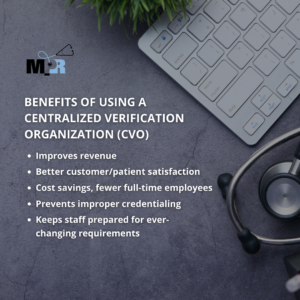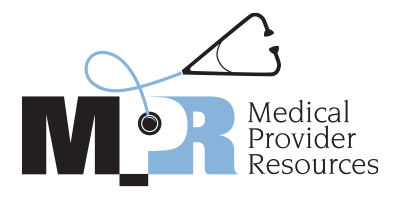Why Use a Medical Credentialing Service? From Provider Credentialing to Ensuring Your Medical Staff Meets Everchanging Verification Requirements – Medical Provider Resources Helps Take the Hassle Out of Centralized Verification for Your Organization.
Credentialing requirements are constantly changing and are unique to each hospital, rehab facility, and ambulatory surgery center. Medical Provider Resources has a team of dedicated, experienced credentialing experts to help serve clients nationwide with custom credentialing packets. Here are just a few of the many benefits of having a Centralized Verification Organization (CVO) provide credentialing and physician background check services so you can focus on what’s most important – patient care!
 Use of one standardized application for providers applying to multiple facilities
Use of one standardized application for providers applying to multiple facilities- Improves revenue stream
- Increased efficiency and standardization for an application to be processed faster allowing the
provider to go to work sooner
- Increased efficiency and standardization for an application to be processed faster allowing the
- Improves customer satisfaction with the reduction of redundancies
- A CVO serves as a resource for regulatory compliance
- Allows for collaboration on regulatory requirements and accreditation standards
- Centralizes the auditing process at the time of a survey
- Provides Medical Staff Offices with increased confidence that they are meeting everchanging requirements for their facility
- Helpful resources with new initiatives
- Considerable cost savings with outsourcing the primary source verification, allows medical staff professionals to function with fewer full-time employees, ultimately saving administrative overhead
- The CVO has qualified and certified employees to run credentialing of all accreditation types
- Credentialing in-house requires that the organization:
- Recruit, Train, Hire, and Retain qualified medical staff professionals on staff
- Prevents healthcare organizations from improper credentialing, which can lead to:
-
- Delayed proper care to patients
- Increased regulatory risks
- Increased loss of revenue
- Increased odds of lawsuits
-



